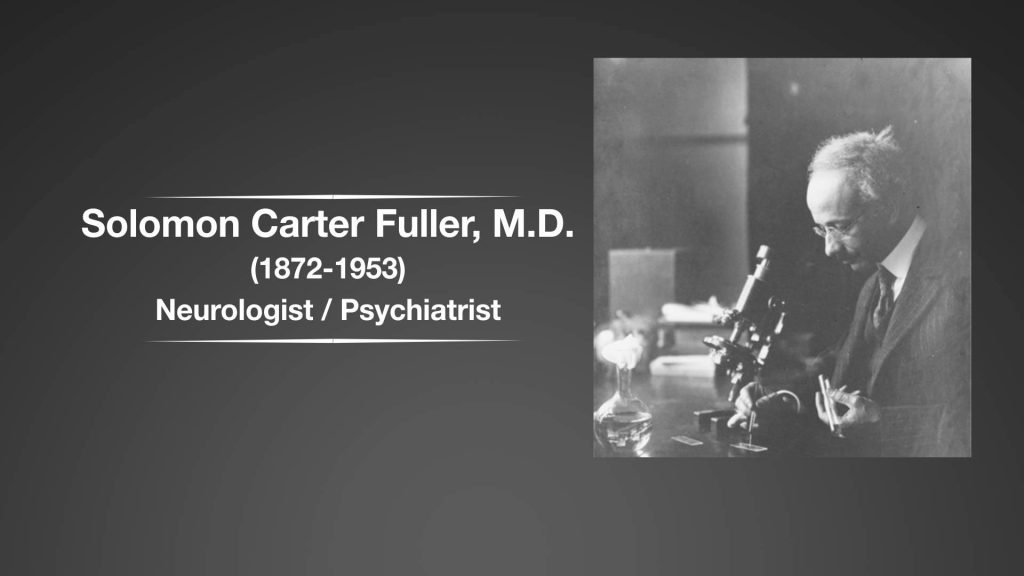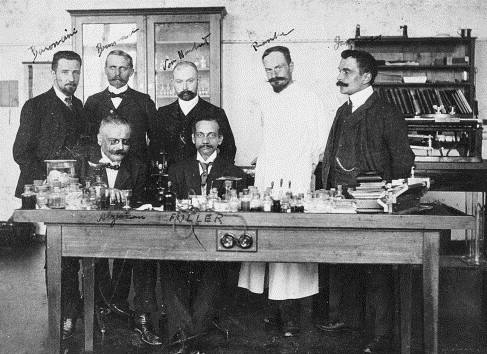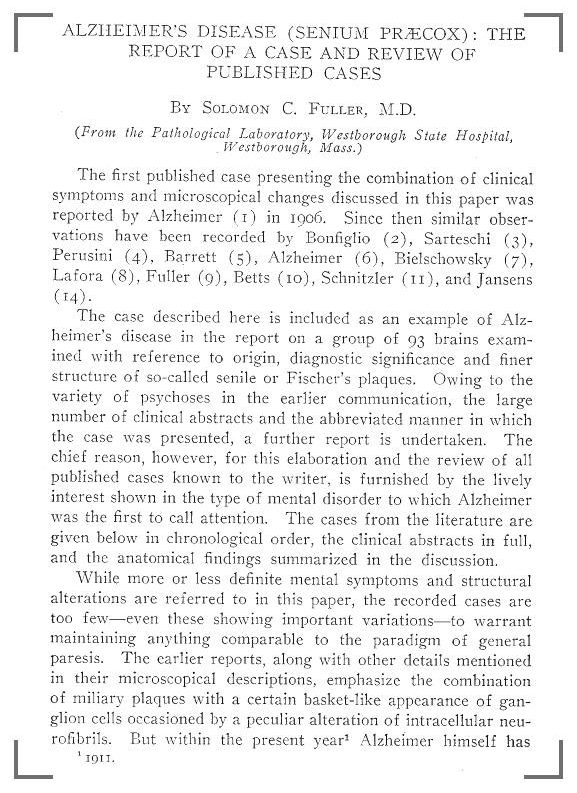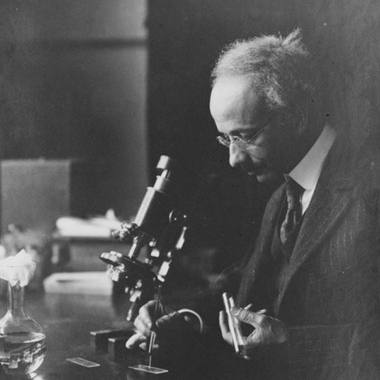-
Black History Month: Honoring Dr. Solomon Carter Fuller

Each February, Black History Month is recognized to honor the many contributions of Black Americans and their role in U.S. history. Keeping with this year's theme of "Black Health and Wellness," the Mayo Clinic News Network will recognize a pioneer in the field of medical science each week throughout the month.
This week, the Mayo Clinic News Network honors Dr. Solomon Carter Fuller.
In 1897, at the age of 25, Solomon Carter Fuller became the nation's first Black psychiatrist. He was a researcher, neuropsychiatrist, teacher and a pioneer in Alzheimer's disease research who worked alongside Dr. Alois Alzheimer.
Dr. Fuller who was born in Monrovia, Liberia, in 1872, was the grandson of American slaves who purchased their freedom and left for Liberia under the American Colonization Fund. Dr. Fuller came to the U.S. as a teen to study medicine with the intention of returning to Liberia to become a medical missionary like his maternal grandparents.
Dr. Fuller received his medical degree from the Boston University School of Medicine. He completed a two-year internship at Westborough State Hospital in Massachusetts and began his professional duties as a hospital pathologist and an instructor of pathology at Boston University. His early years included performing autopsies to collect and analyze tissue sections from deceased mental patients, often making discoveries that advanced his career.
In 1904, Dr. Fuller sought to improve his laboratory and diagnostic skills by studying in Europe. He was one of five foreign visiting students selected by Dr. Alzheimer to work as graduate research assistants. Dr. Alzheimer was studying what was called presenile dementia at the time.

Dr. Fuller worked as a neuropathologist, performing anatomical and histological preparations at the Royal Psychiatric Hospital at the University of Munich. The hospital was headed by psychiatrist Dr. Emil Kraepelin, a renowned psychiatrist who coined the term "Alzheimer's disease" after his student, Alois Alzheimer.
Dr. Fuller's time in Germany proved to be pivotal. Dr. Fuller returned to Westborough State Hospital with an interest in neuropathology and dementia, and he continued his research.
Dr. Fuller published what is now referred to as the first comprehensive review of Alzheimer's disease in 1912. In it, he wrote an account of his own patient with Alzheimer's disease, said to be the ninth case ever discovered. He also included the first English translation of the Alzheimer's case of Auguste Deter, the woman first diagnosed with the degenerative disease. And he also published his own 1912 work in German.
Download: The Journal of Nervous and Mental Disease - Alzheimer's disease: The report of a case and review of published cases - 1912.
Dr. Fuller spent most of his career at Boston University School of Medicine. In later years, he recruited, staffed and trained Black psychiatrists at the Tuskegee Veterans Hospital. There he also trained medical staff to diagnose side effects of syphilis to prevent Black war veterans from getting misdiagnosed, discharged and being deemed ineligible from military benefits.
Dr. Fuller met and married Meta Vaux Warrick, an influential and accomplished sculptor in 1909. Today, her art collections can be viewed at the Danforth Art Museum in Framingham, Massachusetts, and the Smithsonian National Museum of African American History and Culture in Washington, D.C.
Dr. Fuller was underpaid and underemployed, compared to his white colleagues, and the family had white neighbors who petitioned ― and failed ― to remove the family from their Massachusetts home. The Fullers were undeterred by racial barriers, raising three sons while leading their professions.
Dr. Fuller's legacy continues. His portrait hangs at the American Psychiatric Association (APA) headquarters in Washington, DC., and in 1969 the APA established the Solomon Carter Fuller Award to honor Black pioneers who have significantly improved the quality of life for Black people.
Dr. Ronald Petersen, director of the Alzheimer's Disease Research Center at Mayo Clinic, offers his thoughts on Dr. Solomon Carter Fuller's legacy:
Dr. Solomon Carter Fuller is probably one of the most underrecognized giants in the field of Alzheimer's disease research. He worked side by side with Dr. Alois Alzheimer and translated much of Professor Alzheimer's work into English, including the description of Alzheimer's index patient, Auguste Deter.
Dr. Fuller's groundbreaking research helped establish Alzheimer's disease as a physical disease of the brain rather than the result of insanity or aging.
The fundamental contribution of this African American investigator to the field of Alzheimer's disease research will hopefully inspire other African Americans to participate in ongoing research on this disease that disproportionately affects them.
Learn more about Dr. Solomon Carter Fuller and his work by checking out these resources:
- The Lancet: "Auguste D and Alzheimer's Disease."
- Time: "Dr. Solomon Carter Fuller, mind mender."
- National Library of Science: "Solomon Carter Fuller, M.D. (1872–1953): American Pioneer in Alzheimer's Disease Research."
- National Library of Science: "Recognizing African-American Contributions to Neurology: The Role of Solomon Carter Fuller (1872–1953) in Alzheimer's Disease Research."
- The Washington Post: "On World Alzheimer's Day, the Black doctor who helped decode the disease."
- One Hundred Years of American Psychiatry.
- "The Tuskegee Veterans Hospital and Its Black Physicians: The Early Years."
- Neurology: "The Life of Solomon Carter Fuller: An African American Pioneer in Neurology (P5.298)."
- American Journal of Psychiatry: "A Study of the Neurofibrils in Dementia Paralytica, Dementia Senilas, Chronic Alcoholism, Cerebral Lues and Mircocephalic Idiocy."
- American Journal of Psychiatry: "A Study of the Miliary Plaques Found in Brains of the Aged."









